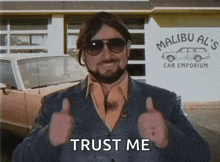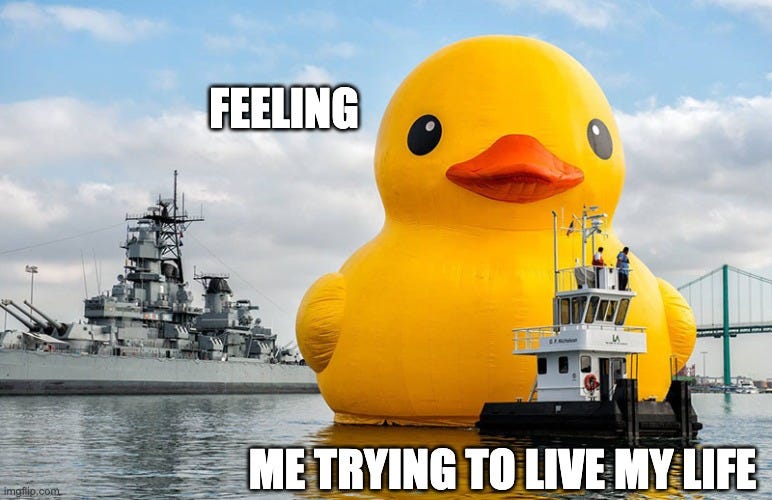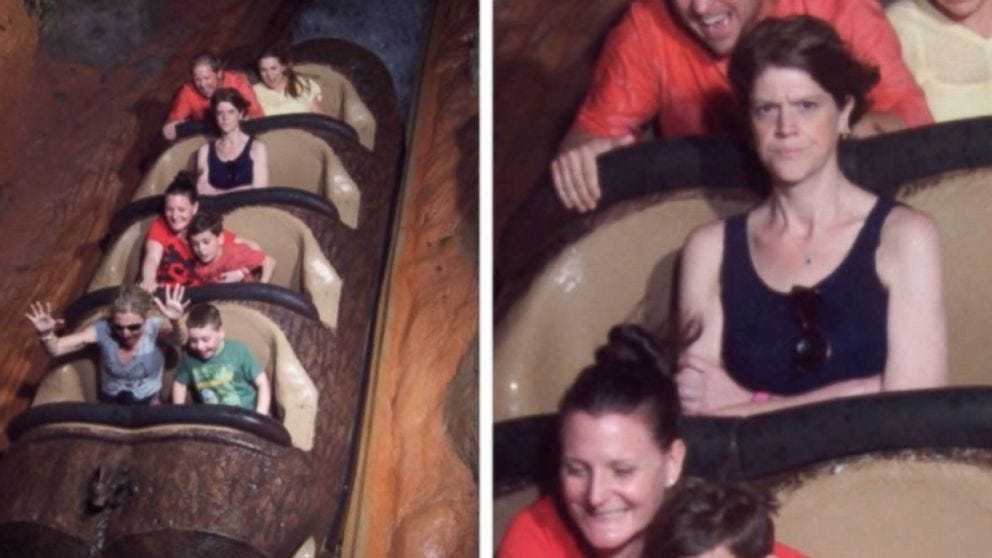I feel a need ...
A NEED FOR SPEEED
YEEEHAWWWW
It's time to go yo!
Let's DO THIS THING!
I've got the most brilliant idea to make us like a million bucks. We're gonna dig ourselves out of this hole, we're gonna -
What's that?
Everything is working fine?
Pfft.
FINE AINT GOOD ENOUGH BABY IM PUMPED AND JACKED AND THIS IS GONNA BE AWEESSEOMMMEE-
- what?
We're on track for our goals?
Look man, I have no idea what you are talking about.
Really feels like nothing is happening and I’ve got THE MOST BRILLIANT IDEA, dude this is gonna be so good and we gotta move we can't wait around for something to happen an-
what?
It's already happening before my eyes?
Ok maybe ...
... that's enough of that nonsense.
Look people.
Future Guardian that you may be ...
The need to FEEL is DANGEROUS.
Dan-Ger-Ous
And despite the obnoxious demonstration of the opening above, that need to feel rarely shows up so obviously.
No,
Rather,
It shows up either subtly ... A new interesting idea. A push for more. A Push for change.
A feeling that you aren't doing enough.
A feeling that it's not quite right.
Or aggressively but somehow secretly in the height of overwhelming emotion
A feeling that you've got to make change because everything is wrong.
A feeling that you need to escape.
It's these two dynamics:
When you exist in the volatile up and down of unfettered waves of emotional carnage wrought almost certainly by things completely out of your control ...
And when everything is just perfectly fine and exactly where you need to be.
What is true is that we have built in ourselves - in our human mindset - this need to feel. But because its feeling and emotion it's difficult to see what that really means and why it's there.
A need for feeling and a need for certainty are connected.
Because our urge to feel is masking the real need we're grasping at, which is the need to know that whatever we're doing is working. That is the certainty we're after.
That we are ok.
(A dynamic marketing and advertising loves to take advantage of ... your need to feel ok)
And ironically,
When things are working really well, you often can't feel it.
We're often times at the highest risk of doing something stupid because we feel like we need to do something when everything is really just actually where it needs to be.
We just can't see the proof (possibly because we've become the proof, in those moments).
Consider this
You hop on an airplane, and fly from San Francisco to New York, a roughly 6 hour flight.
How do you know you're going to get there?
It's a long way and yet we expect to arrive at our destination in about 6 hours time. Yet we can't actually know until we get there.
We can't feel the speed.
But also,
We don't WANT to feel the speed, we want to know that we're gonna get there. If you felt the speed of the airplane - the wind going by, at 500 miles per hour most likely so loudly you can't even hear the roar of the engines, it would be utterly apocalyptically terrifying to you.
So in unpacking this,
I find it helpful to realize, if we can recognize we are desiring a FEELING of something, that means we are seeking certainty, we are seeking the knowledge that what we are doing is working AND simultaneously we are likely tying a lack of feeling to a lack of that certainty.
Which,
Also ironically ... is not uncertainty (which has it's own feelings - dread, fear).
It's like what happens is we get really comfortable in what we are doing, things are going great, we stop feeling it, and then all of a sudden our human mindset goes "oh, wait ... is this working? I better do something."
What does a need to feel look like?
Consider this simplistic story. It's of a person who has everything they want in life, it's all going great, they have the family, house, friends, wealth - they should want for nothing.
But,
It starts to become boring.
Keeping what they have going is easy. It's simple. There's no excitement in it. They start to feel less about the way their life is (less excitement, less fear, less urge, etc).
And they start to think something is wrong.
They start to think they need change. That something is missing.
They need to feel like they are working hard to keep achieving what they have. So they go in search of that feeling.
And in the process,
All the walls come crumbling down.
This is why peaks and valleys are a thing we talk about and why Raising the Floor is one of our most consistently powerful and important tools.
Because when we're reaching to achieve,
We often end up driven by a need to feel.
And you know what feels like almost nothing?
Turning your worst financial month into a slightly better financial month.
Or
Shutting off all your recurring expenses and rebuilding your budget from the ground up - discovering you recaptured over the course of the subsequent year what could easily amount to an entire client's worth of work ...
All over a 45 minute exercise.
Yet in that scenario, we are likely to weight the value of the client work more than saving the money even if the monetary value is the same and thus the time-to-money value is much higher by saving vs spending the time reeling in and delivering on the client.
Considering the above,
If we're not careful and cognizant of the impact our feelings are having on our decision making, it's easy to get stuck in making decisions because we can feel them rather than the objective benefit that those decisions have to us.
I talk about this at the end of The Microstep.
We often take our steps the way we do because we want to feel them.
We often make our choices the way we do because one we can feel and the other we can't, and we disregard good decision making processes in the name of feeling.
It's one thing to have feeling sneak up on us when everything is going well,
But
No more present is the danger of the need to feel than when we ARE existing in the peak and valley rollercoaster.
Riding up the peak is seeking feeling, and falling down into the valley1 drives us to seek new and different feeling to change the bad feeling into the good.
Up and down.
Up and down.
In the swing of that coaster is inevitable hammer of positive and negative feeling on our state of being and then it becomes nearly impossible to filter our feeling out of our decision making.
Which is unfortunate because feeling is objectively a terrible measurement for choice.
Our feelings are rarely ever anchored in the reality of what we are looking at, and they can be so easily swayed by things which have nothing to do with our current path.
You feel bad about where you are and feel like you need to make a huge change ...
Maybe you're tired.
Maybe you're hungry.
Maybe you're sick.
Maybe your dog just pissed on your favorite carpet.
Maybe you're grieving.
Maybe you've just had a huge win and feel like you're on top of the world.
NONE OF THOSE THINGS have a direct relevance to any "next best step"2 decision making you may be dealing with, but they all impact how you feel, and thus threaten to impact how you make that choice.
Let's go back to that NEED FOR SPEED!
That's fun right?
What is our insane brain trying to do when we're super hot on a brilliant looking idea and we really feel like we want to go after that?
Hang on,
This is gonna be a let down.
Let me simmer that for a moment.
...
...
yea ok that's a little better.
This is kinda dumb and obvious ...
We're making a choice, people.
The thread through all of this is making decisions well.
Not "making good decisions" ... I said "making decisions well." Remember that 'ole' decisions making matrix? We often think good choices = good outcomes and bad choices = bad outcomes, and therefore good outcomes meant good choices, etc
But good choices can = bad outcomes. Doesn't make the choice bad.
But if we don't respect the danger of needing to feel, we put ourselves into the "make choices poorly" category.
Whether we're trying to figure out our constraint, the next best step to take, having a sense that there needs to be a change ...
Every junction point where you have a choice to make, whether that is put upon you by external forces, or you have brought yourself there by feeling like you need to do it ...
You are choosing your actions.
If you find yourself feeling like you want to do something or need to make a choice, ask yourself,
What are you really looking for?
Is there data already available that can support what you are looking for?
Is there simple data you can acquire with a low risk (microstep3)?
But beware.
That feeling often wants to take us away from what is already working, and what is already good, because those things are known, they are less interesting, less exciting.
You might be riding a rollercoaster and desperately wanting to make a change to get off ...
And you might also be exactly where you need to be, thinking, because of your feelings, that you need to do something else.
Move slowly.
Move deliberately.
Feeling is not bad. But making decisions driven by feeling is a sure way to not get what you really want.
Speaking of being where you need to be and getting what you want, the world is changing rapidly, we have a new president, the crypto market is heating up and the Holidays are right around the corner.
Later today (Friday, the 8th) we will be attending a free masterclass on Web 3, the future of web 3 and how to think about getting the benefits of the digital gold rush without feeling left behind and unnecessary mistakes. The link to join is here:
https://www.cryptomasterclass.ai/register
It’s free. It should be short and high value. See you there.
Be Useful. Be Present. Love the Journey.
Joseph Robertson, CMO The Guardian Academy
Engage in discussion with the author and TGA+ Community in the comments below - give us your 6WU and/or thoughts after reading. Together we make a rising tide that lifts all ships.
Ready to apply your ideas to reality? You may find our Engage the Field Handbook a useful and effective resource.
Get your hands on awesome unique swag and opportunities by sharing this article. We treat our ambassadors like royalty :)















I love the decision making matrix - always good to consider how it turned out and sometimes not in our control no matter what we do … and how would be do it different next time 6WU - decisions, no matter outcome, learn insights
Wish I would have read this yesterday morning. I felt that need to feel and made some moves I regret.
6WU: Don’t let feelings drive decision making. Or Doing nothing is a valid decision.